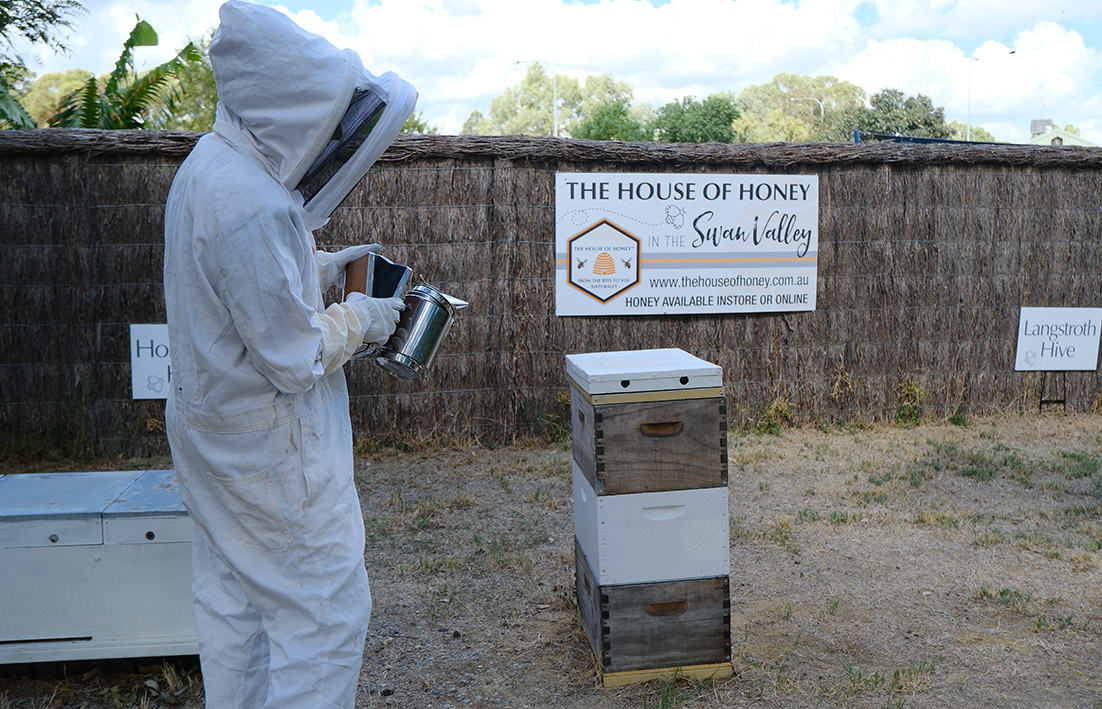
AS the threat of varroa mite looms over Australia’s bee farms, The House of Honey director Rupert Phillips says they are being extra vigilant and proactive during this year’s bee pest blitz (BPB), which is held each April.
The Department of Primary Industries and Regional Development (DPIRD) are encouraging WA beekeepers to participate in the April blitz and report the results to the department.
According to Plant Health Australia, the blitz is part of a national campaign to identify bee pests to mitigate against any impact on the industry and environment.
“The BPB campaign aims to create awareness of exotic and established bee pests, the importance of hive inspections using nationally-agreed surveillance techniques and consistent record keeping and reporting of results,” Plant Health Australia stated on its website.
“The campaign also aims to increase understanding of roles and responsibilities and the shared culture in biosecurity.”
Mr Phillips said a varroa mite breeds within the beehive by attaching itself to honeybee larvae and adult bees before killing them.
“Only with beekeeper intervention can a colony survive and not always so either,” Mr Phillips said.
Although BPB is held annually, Mr Phillips said awareness for pests is part of a beekeeper’s regular routine.
According to the DPIRD, there are more than 4500 registered beekeepers in WA, with more than 53,000 hives.
“WA’s bee industry is notable for remaining free from many serious bee diseases and pests that challenge the honey industry elsewhere,” DPIRD deputy chief plant biosecurity officer Michelle Christy said.
According to the federal body Outbreak, varroa mite was first detected in 2022 in NSW.
“In September 2023, it was agreed that it was not technically feasible to eradicate varroa mite.”
In August 2024, Agriculture Victoria reported the first case of varroa mite outside of New South Wales.
“In Australia we are now embarking upon a rather monumental battle to keep our bees alive and well following the incursion of the varroa mite in NSW,” Mr Phillips said.
“We are trying our very best to keep it out of WA, which requires an acute awareness by beekeepers and the general public.”
Mr Phillips said the blitz is beneficial for both hives and industry.
“A good working knowledge of these pests and diseases greatly assists all beekeepers in keeping hives healthy and numerous, which in turn benefits honey production and pollination enormously.
“More bees equals more honey and better pollination of crops.
“A win for everyone,” he said.